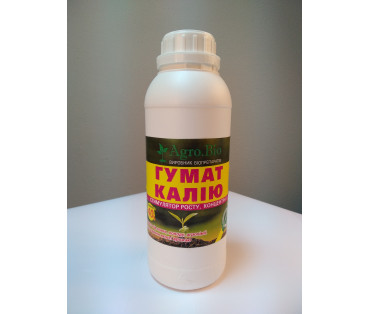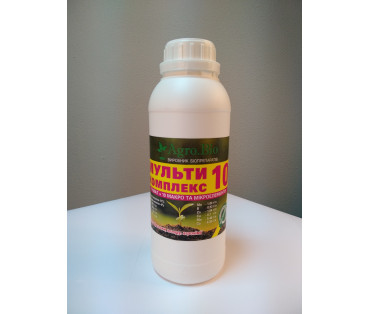Potassium (К) is one of the main major nutrient elements that improves soil fertility
Potassium (К) is one of the main major nutrient elements that improves soil fertility, it actively contributes to the processes of photosynthesis, stimulates the turgor processes in the cell (promotes the best flow of substances to the plants organs), regulates the osmotic pressure (permeability, water regulation), the processes of respiration (improves the work of respiratory circuit), the synthesis of carbohydrates; activates the work of enzymes; increases the content of sugars, carbohydrates (starch), vitamins (ascorbic acid); promotes growth and development of the roots, increases tillering, fruit size, provides the cereal crops resistance to lodging, promotes cell wall thickening, improves the taste of fruits, increases shelf life. As well as potassium increases sugar degree of the root crops, accumulation of fats in croppers' seeds, starch content in potato tubers. Potassium increases crop progress, frost resistance, winter tolerance, improves plants' resistance to diseases (fungal, viral), pests, and stress factors (drought, temperature changes).
Young agricultural plants especially require a lot of potassium, and the more nitrogen is used for nutrition, the more potassium is necessary to apply for fertilization, and for normal absorption of potassium in sufficient quantities the iron is required.
Potassium deficiency: when the amount of potassium is insufficient there is a decrease in the intensity of the process of photosynthesis, metabolism (dying of tissues, yellowing or browning, wrinkling, wilting of leaves, their twisting at bottom, shriveling and light green spots on the leaves, the formation of marginal firing); transportation of carbohydrates (reducing the formation of seeds, small fruits, taste, yield decrease and early shedding).
The amount of potassium content in soils decrease appears during the period of intensive growth and development of vegetative organs (potatoes, beets, vegetables), and its content in plant cells can decrease from 3-5 times comparing the norm.
An insufficient amount of potassium may occur with excess of magnesium and calcium in the soil and may not appear obviously (starting from the edges of the bottom layer leaves), but as a result, agricultural crops poorly tolerate the drought, do not withstand frost, and in general can die from changes in the natural and climatic conditions.
Abuse of potassium nutrition: leads to the emergence of pale spots between the veins of leaves; the spots get brownish black color in time and leaves fall. With potassium overbalance in the soil, the deficiency of elements such as zinc, molybdenum and copper appears.
Potassium interinfluence with other elements
| Antagonists (overbalance of one triggers a deficiency of another element) | Synergist (improve mutual properties of each other) | Block the each other interaction (it is not recommended to combine together) |
| N (nitrogen), Na (sodium), Fe (iron - 50%) | Ca (calcium), Mg (magnesium) | Fe (iron - 50%) |
Related Products
Humate Potassium + Phosphorus «Agro.Bio»
Potassium humate + ballast-free phosphorus from leonardite produced by AGRO.BIO is an environmentally friendly complex fertilizer and growth stimulator for agricultural plants, of organic origin, with..
$7.00
Multicomplex Humate 10
Complex preparation Multicomplex humate 10 - liquid, concentrated, organic fertilizer, plant growth stimulant, containing potassium humate and microelements in chelated form (humic acids - 64.9 ..
$10.00


